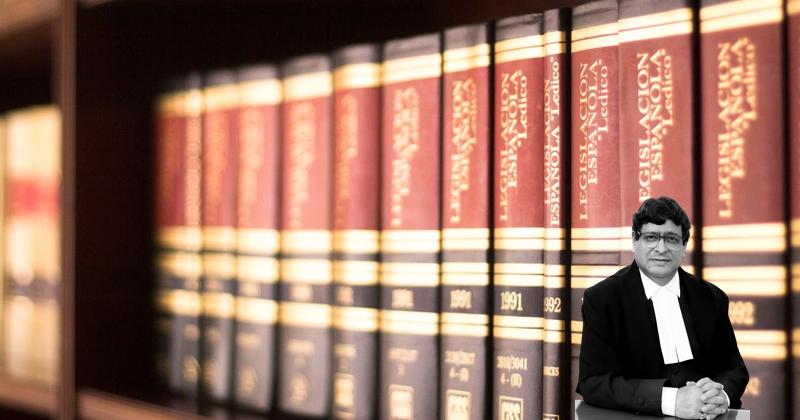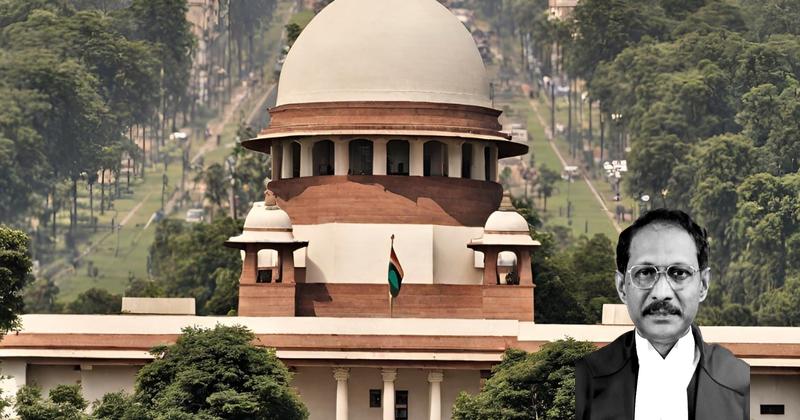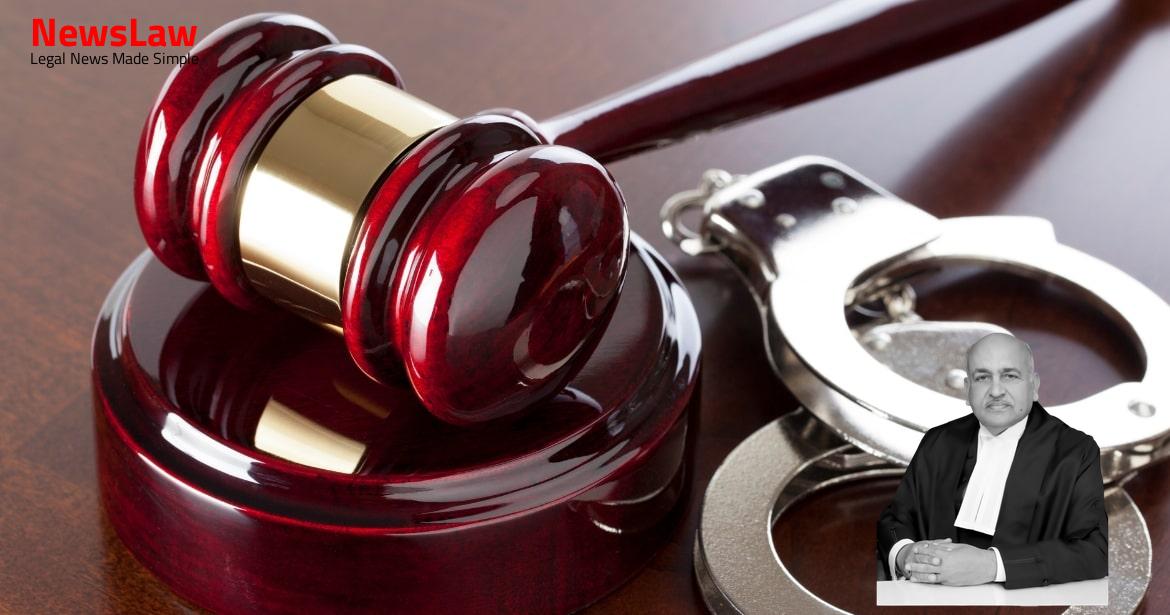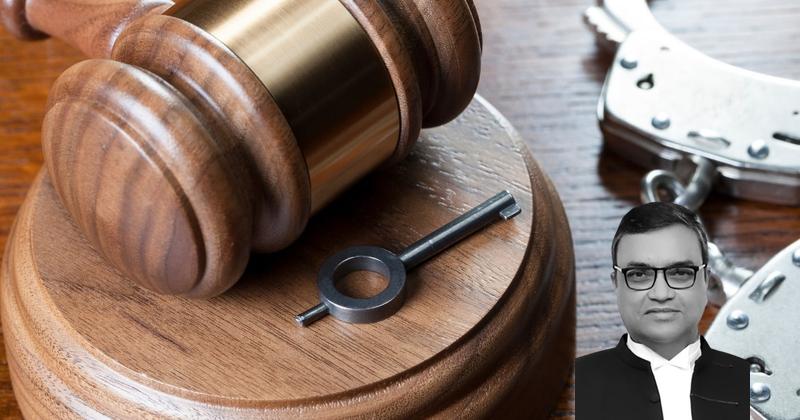It is the case of the appellants that the respondents herein were inducted as tenants on 27.12.1987 by the father of the appellants in respect of the property bearing House No 163 (Old No 143) situated at Village Dhakka, Kingsway Camp, Delhi on monthly rent of Rs. It appears from the materials on record that after the written statement was filed by the respondents denying the relationship of landlord and the tenant, the plaintiffs failed to appear before the Rent Controller for the purpose of establishing the relationship of landlord and tenant between the parties. Since the relationship of Landlord tenant itself is under dispute and the petitioner has failed to adduce any evidence to establish this fact, I am of the opinion that there is no point in fixing the case 3 further for RE.
After the demise of Samey Singh (original plaintiff), the appellants herein claiming as successors in interest filed another eviction petition registered as Eviction Petition No 136 of 2001 against the respondents herein under Section 14(1)(a) of the Act 1958 claiming inter alia arrears of rent from 01.03.1993 till the date of issuance of notice i.e. The Additional Rent Controller while rejecting the application filed by the respondents for rejecting of the plaint took the view that the second eviction petition filed under Section 14(1)(a) of the Act 1958 was 4 based on a fresh notice dated 18.05.2001 on separate cause of action and that there was no finding on merits as regards the relationship of landlord and tenant between the parties in the order dated 27.01.1998 referred to above. Having been afforded an opportunity to lead evidence and having failed to produce any evidence in the Court, it has to be taken as a decision on merits under Order XVII Rule 3 of the Code of Civil Procedure for the purpose of Section 11 of the Code. Samey Singh 5 was required to prove that he was the landlord of the petitioner, but he failed to do so, the Rent Controller had no option but to decide the issue against him on account of non-production of evidence. The findings returned by the Rent Controller in his order dated 27.01.1998 passed in the first petition have to be held to be findings on merits and having been adjudicated conclusively, are final in nature and act as a bar of res judicata on the second eviction petition preferred by the respondents. The learned counsel appearing on behalf of the appellants vehemently submitted that the High Court committed a serious error in taking the view that the second Eviction Petition The learned counsel further submitted that the High Court also committed an error in applying the principles of Order 17 Rule 3 of the CPC as the first order passed by the Rent Controller dated 27.01.1998 in the first eviction petition was not on merits and, therefore, no finding could be said to have been rendered as regards the relationship of landlord and tenant which could be said to be binding between the parties in the second eviction petition.
The learned counsel would submit that the High Court rightly observed that the order dated 27.01.1998 passed by the Rent Controller in the first round of litigation could be said to be under the provisions of Order 17 Rule 3 of the CPC and, if that be so, then the finding that the original plaintiff i.e.
He would submit that the High Court rightly rejected the plaint of the eviction petition under the provisions of Order 7 Rule 11(d) of the CPC. Nanak Singh, AIR 1968 SC 1370 : (1968) 2 SCR 887 2. —
The plaint shall be rejected in the following cases: — (a) where it does not disclose a cause of action; (b) where the relief claimed is undervalued, and the plaintiff, on being required by the Court to correct the valuation within a time to be fixed by the Court, fails to do so; (c) where the relief claimed is properly valued, but the plaint is returned upon paper insufficiently stamped, and the plaintiff, on being required by the Court to supply the requisite stamp-paper within a time to be fixed by the Court, fails to do so; (d) where the suit appears from the statement in the plaint to be barred by any law; (e) where it is not filed in duplicate; (f) where the plaintiff fails to comply with the provisions of rule 9: Provided that the time fixed by the Court for the correction of the valuation or supplying of the requisite stamp-paper shall not be extended unless the Court, for reasons to be recorded, is satisfied that the plaintiff was prevented by any cause of an exceptional nature for correcting the valuation or supplying the requisite stamp-paper, as the case may be, within the time fixed by the Court and that refusal to extend such Order 7 Rule 11(d) of CPC provides that the plaint shall be rejected “where the suit appears from the statement in the plaint to be barred by any law”. It is necessary that we refer to the exercise taken up by this Court while adjudicating on res judicata, before referring to res judicata as a ground for rejection of the plaint under Order 7 Rule 11. May be, in a given case only copy of judgment in previous suit is filed in proof of plea of res judicata and the judgment contains exhaustive or in requisite details the statement of pleadings and the issues which may be taken as enough proof. of State for India in Council [(1887-88) 15 IA 186 : ILR 16 Cal 173] pointed out that the plea of res judicata cannot be determined without ascertaining what were the matters in issue in the previous suit and what was heard and decided. Rajeshwari (supra) observed that the rule of res judicata does not strike at the root of the jurisdiction of the Court trying the subsequent suit. At this stage, it would be necessary to refer to the decisions that particularly deal with the question whether res judicata can be the basis or ground for rejection of the plaint.
What would be relevant for invoking clause (d) of Order 7 Rule 11 of the Code are the averments made in the plaint. The question 12 involving a mixed question of law and fact which may require not only examination of the plaint but also other evidence and the order passed in the earlier suit may be taken up either as a preliminary issue or at the final hearing, but, the said question cannot be determined at that stage. […] It is clear from the above that where the plaint does not disclose a cause of action, the relief claimed is undervalued and not corrected within the time allowed by the court, insufficiently stamped and not rectified within the time fixed by the court, barred by any law, failed to enclose the required copies and the plaintiff fails to comply with the provisions of Rule 9, the court has no other option except to reject the same. For the purposes of deciding an application under clauses (a) and (d) of Rule 11 of Order 7 CPC, the averments in the plaint are germane; the pleas taken by the defendant in the written statement would be wholly irrelevant at that stage, therefore, a direction to file the written statement without deciding the application under Order 7 Rule 11 CPC cannot but be procedural irregularity touching the exercise of jurisdiction by the trial court.” It is clear that in order to consider Order 7 Rule 11, the court has to look into the averments in the plaint and the same can be exercised by the trial court at any stage of the suit. Shyamal Kumar Sen, (2018) 5 SCC 644, an application was moved under Order 7 Rule 11 of the CPC claiming rejection of the plaint on the ground that the suit was barred by res judicata. However, at this stage, as rightly pointed out by the High Court, the defence in the written statement cannot be gone into. One has to only look into the plaint for the purpose of deciding application under Order 7 Rule 11 CPC. In a case like this, though recourse to 15 Order 7 Rule 11 CPC by the appellant was not appropriate, at the same time, the trial court may, after framing the issues, take up the issues which pertain to the maintainability of the suit and decide the same in the first instance. This Court in the case of Soumitra Kumar Sen (supra) was examining a case where the defendant had moved an application before the Trial Court under Order 7 Rule 11 of CPC requesting the Court to reject the plaint on the ground of res judicata. On a perusal of the above authorities, the guiding principles for deciding an application under Order 7 Rule 11(d) of the CPC can be summarized as follows:- (i) To reject a plaint on the ground that the suit is barred by any law, only the averments in the plaint will have to be referred to; 16 (ii) The defence made by the defendant in the suit must not be considered while deciding the merits of the application; (iii) To determine whether a suit is barred by res judicata, it is necessary that (i) the ‘previous suit’ is decided, (ii) the issues in the subsequent suit were directly and substantially in issue in the former suit; (iii) the former suit was between the same parties or parties through whom they claim, litigating under the same title; and (iv) that these issues were adjudicated and finally decided by a court competent to try the subsequent suit; and (iv) Since an adjudication of the plea of res judicata requires consideration of the pleadings, issues and decision in the ‘previous suit’, such a plea will be beyond the scope of Order 7 Rule 11 (d), where only the statements in the plaint Where the former suit is dismissed by the trial court for want of jurisdiction, or for default of the plaintiff’s appearance, or on the ground of non-joinder or mis-joinder of parties or multifariousness, or on the ground that the suit was badly framed, or on the ground of a technical mistake, or for failure on the part of the plaintiff to produce probate or letter of administration or succession certificate when the same is required by law to entitle the plaintiff to a decree, or for failure to furnish security for costs, or on the ground of improper 17 valuation, or for failure to pay additional court fee on a plaint which was undervalued, or for want of cause of action, or on the ground that it is premature and the dismissal is confirmed in appeal (if any), the decision, not being on the merits, would not be res judicata in a subsequent suit.
149 of 1996 that the eviction petition deserves to be dismissed as the plaintiff Samey Singh had failed to establish the relation of landlord and tenant between the parties could be said to be on merits so as to render the second Eviction Petition — Where, on any day to which the hearing of the suit is adjourned, the parties or any of them fail to appear, the Court may proceed to dispose of the suit in one of the modes directed in that behalf by Order IX or make such other order as it thinks fit. — Where any party to a suit to whom time has been granted fails to produce his evidence, or to cause the attendance of his witnesses, or to perform any other act necessary to the further progress of the suit, for which time has been allowed, the Court may, notwithstanding such default, — (a) if the parties are present, proceed to decide the suit forthwith; or (b) if the parties are, or any of them is, absent, proceed under rule 2.” Order 17 Rule 2 of the CPC provides that where, on any day to which the hearing of the suit is adjourned, the parties or any of them fail to appear, the Court may proceed to dispose of the suit in one of the modes directed in that behalf by order IX or make such other order as it thinks fit.
Order 17 Rule 3 of the CPC, however, provides that where any party to a suit to whom time has been granted fails to produce his evidence, or to cause the attendance of his witnesses, or to perform any other act necessary to the further progress of the suit, for which time has been allowed, the Court may, notwithstanding such default, (a) if the parties are present, proceed to decide the suit forthwith, or (b) if the parties are, or any of them is, absent, proceed under Rule 2. The Explanation permits the court in its discretion to proceed with a case where substantial portion of evidence of any party has already been recorded and such party fails to appear on any day to which the hearing of the suit is adjourned. Under Order 9 Rule 3 the court may make an 20 order directing that the suit be dismissed when neither party appears when the suit is called on for hearing. Combined effect of the Explanation to Rule 2 and Rule 3 is that a discretion has been conferred on the court. It obviously means that the evidence on record is sufficient to substantiate the absentee party’s stand and for disposal of the suit. Kamisetti Sreeramulu, AIR 1918 Mad 143 (FB), the Full Bench of the Madras High Court has held that Rules 2 and 3 of Order XVII of the Code, of Civil Procedure are mutually exclusive. Abdul Kareem, AIR 1961
Also Read: https://newslaw.in/case-type/civil/analyzing-the-courts-legal-analysis/
Andh Pra 201 is a Full Bench decision of the Andhra Pradesh High Court 22 which has adopted the view taken by the Madras High Court in Pra-tivadi’s case, AIR 1918 Mad 143(2) (FB). Ma, Aye Myint, AIR 1937 Rang 437, the High Court of Nagpur in Bhioraj Jethmal v. When the plaintiff made an application to set aside the order of dismissal under Section 102 (Order IX Rule 8) the defendant took a preliminary objection that the suit bad been dismissed not under Section 102 but under Section 158 (Order XVII Rule 3) and consequently the remedy of the plaintiff was by way of review and not for restoration.
Section 157, on the other hand, speaks of the disposal of the suit, and undoubtedly includes cases in which there might not be any materials before the Court to enable it to pronounce a decision on the merits, for instance, if the event contemplated in Sections 97, 98, 99 Clause (a) and 102 happens, although, if the contingency mentioned in Section 100, Clause (a) happens, there would be materials before the Court, and a decision on the merits. Such an express provision is in Order V, Rule 1, where the mode of appearance by a defendant is stated to be either (a) in person, or (b) by a pleader duly instructed and able to answer all material questions relating to the suit, or (c) by a pleader accompanied by some person able to answer all such questions. In Gopi Kishan (supra) the Full Bench of the Rajasthan High Court gave an illustration as to when Rule 2 or Rule 3 of Order 17 would apply.
There can be cases as the one before us, where time was granted to a party to produce evidence but the party not only failed to produce evidence but also absented itself and it cannot be said that Order XVII Rule 3 cannot apply to such a case.
In Ramkaran’s case, ILR (1953) 3 Raj 798 the learned Judges of this Court felt persuaded by the provisions of Order XX Rule 4 of the Code of Civil Procedure to hold that the existence of material was necessary and because only pleadings and issues were on record they opined that the dismissal should be construed to be one under Order XVII Rule 2. To our mind, it is too wide a proposition to lay that in no case where evidence has not been led Rule 3 would be inapplicable. Suppose in a suit on a promissory note the execution of which has not been denied by the defendant and the defendant pleads want of consideration seeking time to produce evidence.
Therefore, if the plaintiff fails to discharge the burden placed on him in view of the pleadings and consequent issues despite the opportunity afforded to him the case cannot be adjourned for his evidence ad infinitum and the Court at some stage or the other has to decide it for want of evidence. It is correct that the application, of Rule 3 restricts the future remedies of a defaulting party and is a stringent provision, and, therefore, it should be applied with circumspect caution and judicial restraint, Ramkaran’s case, ILR (1953) 3 Raj 798 therefore, has to be read with the aforesaid modification. If the suit can be decided despite the lack of evidence on the material before it, then in such circumstances Order 17 Rule 3 of the CPC would govern the case. It is therefore clear that if on a date fixed, one of the parties remain absent and for that party no evidence has been examined upto that date the Court has no option but to proceed to dispose of the matter in accordance with Order 17 Rule 2 in any one of the modes prescribed under Order 9 of the Code of Civil Procedure. It is also clear that Order 17 Rule 3 as it stands was not applicable to the facts of this case as admittedly on the date when the evidence of defendant was closed nobody appeared for the defendant. Thus the dictum as laid by this Court in Prakash Chander Manchanda (supra) is that it will be within the discretion of the Court to proceed under Rule 3 even in the absence of evidence but such discretion is limited only in cases where a party which is opposing has led some evidence or has examined substantial part.
The High Court interpreted or rather construed the order of the Additional Rent Controller as one under Rule 3 of Order 17 and, therefore, took the view that the findings as regards the relationship of landlord and tenant could be said to be on merits. In any contingency, the discretion is always with the Court to resort to Rule 2 or 3 respectively or to grant an adjournment for deciding the suit in a regular way in spite of default. Rule 3 comes into play only when presence is to proceed with the case, but default is committed in any one of the three ways mentioned in Rule 2 or explanation to Rule 2 is extracted. The order passed by the Rent Comptroller dated 27.01.1998 referred to in para 8 of this judgment, has a different angle too.
Also Read: https://newslaw.in/case-type/criminal/alleged-misuse-of-official-position-courts-legal-analysis/
30 The exact words used by the Rent Controller in the order dated 27.01.1998 are: “ the PE is thus closed. Under that Order on a date of adjourned hearing, if a party was absent, the Court either would act under Order 9 or otherwise as it thought fit; or if a party was present but it did not produce evidence, it would proceed to decide the suit forthwith without benefit of evidence. The order did not purport to be one of dismissal for default or on merits and it cannot be taken to mean other than what it purported to be. Such an application would obviously be decided on its merits about which also we expressed no opinion.
Case Title: PREM KISHORE . Vs. BRAHM PRAKASH . (2023 INSC 317)
Case Number: C.A. No.-001948-001948 / 2013



